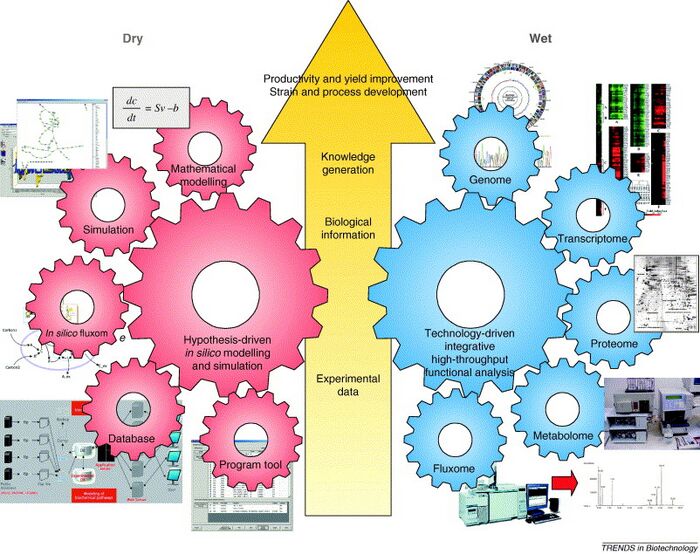SSB@NUS
|
Welcome to Integrated Systems Biology and Bioinformatics (ISB2) LAB @National University of Singapore Systems Biology: the 21st Century Science Systems biology is the study of an organism, viewed as an integrated and interacting network of genes, proteins and biochemical reactions which give rise to life. Instead of analyzing individual components or aspects of the organism, such as sugar metabolism or a cell nucleus, systems biologists focus on all the components and the interactions among them, all as part of one system. These interactions are ultimately responsible for an organism´s form and functions. For example, the immune system is not the result of a single mechanism or gene. Rather the interactions of numerous genes, proteins, mechanisms and the organism´s external environment, produce immune responses to fight infections and diseases. Systems biology emerged as the result of the genetics "catalog" provided by the Human Genome project, and a growing understanding of how genes and their resulting proteins give rise to biological form and function. The study of systems biology has been aided by the ease with which the internet allows researchers to store and distribute massive amounts of information, plus advances in powerful new research technologies, and the infusion of scientists from other disciplines, e.g. computer scientists, mathematicians, physicists, and engineers. Traditional biology — the kind most of us studied in high school and college, and that many generations of scientists before us have pursued — has focused on identifying individual genes, proteins and cells, and studying their specific functions. But that kind of biology can yield relatively limited insights about the human body. As an analogy, if you wanted to study an automobile, and focused on identifying the engine, seat belts, and tail lights, and studied their specific functions, you would have no real understanding of how an automobile operates. More important, you would have no understanding of how to effectively service the vehicle when something malfunctions. So too, a traditional approach to studying biology and human health has left us with a limited understanding of how the human body operates, and how we can best predict, prevent, or remedy potential health problems. Biologists, geneticists, and doctors have had limited success in curing complex diseases such as cancer, HIV, and diabetes because traditional biology generally looks at only a few aspects of an organism at a time. As scientists have developed the tools and technologies which allow them to delve deeper into the foundations of biological activity — genes and proteins — they have learned that these components almost never work alone. They interact with each other and with other molecules in highly structured but incredibly complex ways, similar to the complex interactions among the countless computers on the Internet. Systems biology seeks to understand these complex interactions, as these are the keys to understanding life. The individual function and collective interaction of genes, proteins and other components in an organism are often characterized together as an interaction network. Indeed, understanding this interplay of an organism´s genome and environmental influences from outside the organism (nature and nurture) is crucial to developing a — systems — understanding of an organism that will ultimately transform our understanding of human health and disease. Systems biology is still in its infancy; we are at the turning point in our understanding of what the future holds for biology and human medicine.
Configuration Purpose
|
